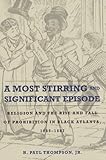Support H-Net | Buy Books Here | Help Support the NBN and NBN en Español on Patreon | Visit New Books Network en Español!
- African Studies
- African American Studies
- American Politics
- American Studies
- American South
- American West
- Asian American Studies
- Australian and New Zealand Studies
- British Studies
- Canadian Studies
- Caribbean Studies
- Central Asian Studies
- Chinese Studies
- East Asian Studies
- Eastern European Studies
- European Politics
- French Studies
- German Studies
- Iberian Studies
- India Studies
- Indian Ocean World
- Iranian Studies
- Irish Studies
- Israel Studies
- Italian Studies
- Japanese Studies
- Korean Studies
- Latino Studies
- Latin American Studies
- Mexican Studies
- Middle Eastern Studies
- Native American Studies
- Pacific Studies
- Polish Studies
- Russian and Eurasian Studies
- Southeast Asian Studies
- South Asian Studies
- Turkish Studies
- Ukrainian Studies
- Western European Studies
- World Affairs
- Animal Studies
- Anthropology
- Archaeology
- Business, Management, and Marketing
- Media
- Critical Theory
- Disability Studies
- Drugs, Addiction and Recovery
- Education
- Economics
- Finance
- Geography
- Gender Studies
- Genocide Studies
- Higher Education
- Human Rights
- Journalism
- Language
- Law
- LGBTQ+ Studies
- National Security
- Philosophy
- Policing, Incarceration, and Reform
- Political Science
- Politics & Polemics
- Public Policy
- Sex, Sexuality, and Sex Work
- Sociology
- Sound Studies
- Sports
- Urban Studies

Jun 29, 2012
Living with Lynching
African American Lynching Plays, Performance, and Citizenship, 1890-1930
Summary
Koritha Mitchell's Living with Lynching: African American Lynching Plays, Performance, and Citizenship, 1890-1930 (University of Illinois Press, 2012) is, as described on the publisher's webpage, "the first full-length critical study of lynching plays in American culture." Drawing from a diverse array of methods and disciplines including American studies, literary criticism, performance studies, and theatre, Mitchell boldly claims and astutely substantiates how early twentieth-century lynching plays provide a literary and even domestic and community space for African Americans to challenge and cope with erratic vigilante racism that threatened black life in America. She also claims that reading these plays can inform our understanding of African American literature, politics, theatre, and the performance of everyday life today.
Perhaps what's most provocative and noteworthy about Mitchell's study is her insistence that contemporary representations of lynching, such as well-known photographs, perpetuate lynching as a spectacle for white consumption. These representations serve as a buoy and less of a challenge to an ideology of white racial superiority. On the other hand, the performance and readying of lynching plays written by African Americans places black humanity and community, instead of black degradation, at the center of spectatorship and thus serves as a challenge to anti-black ideologies and violence. The assault on the black body is certainly noted in the plays, but the effect of lynching on the lives, families, communities, and even histories and futures of the imagined victims and, from there, the real race, is considered in fuller ways that are limited by the iconic photographic representations of lynching. That said, Mitchell's discussion of Living with Lynching is a must to consider. Please listen in.
























































































